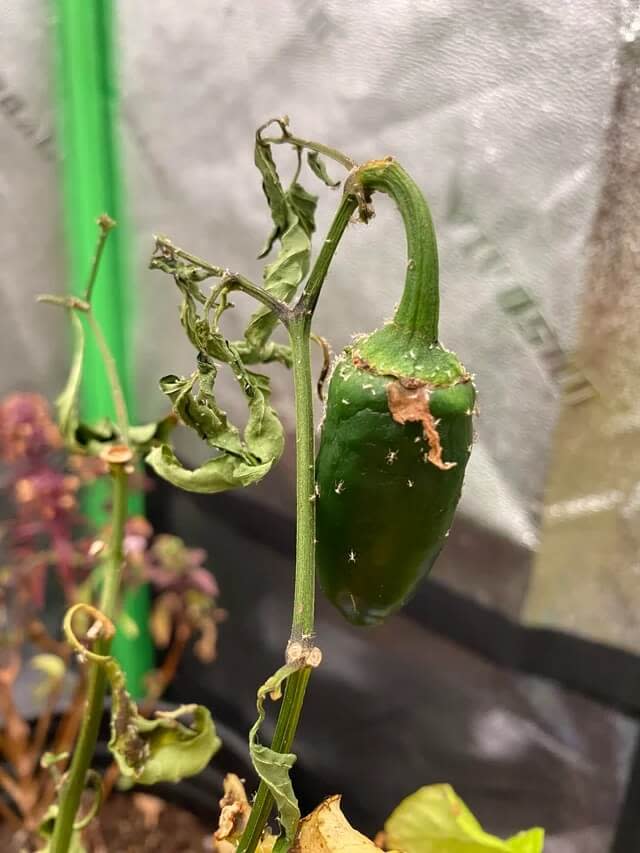Gardener distraught after returning home from vacation to worrying indoor scene: ‘It looks like you have some hitchhikers’
The preparations for leaving home for vacation are nothing but arduous. You have to find someone trustworthy to watch your pets, your home itself, and, for those with green thumbs, your plants, too.
One Reddit user expressed their regrets in preparing (or in this case, failing to prepare) their house sitter for watching their pepper plants.
The user shared photos of their pepper plant, infested with small yellow bugs, on the r/gardening forum. The poster noted that they thought two pests had infested a whole pepper and the plant’s leaves. In the post’s title, the Redditor shared that they had brought their plants inside for the winter but failed to inform their house sitter that they needed to check on those plants.

The original poster reached out to the community for help identifying the tiny creatures and what to do about them. As commenters identified, one of the likely pests on the plants was nymph aphids. These young pests are relatively common in yards and gardens across the country and rarely cause anything more than an eyesore.
Managing these pests is relatively simple and can be done with non-toxic methods that are safe for plants, humans, and other animals.
You can mix liquid soap (free of degreasers and harsh chemicals) with water and apply it to the aphids, affected parts of the plant, and undersides of the leaves where the adults will lay their eggs. Essential oils, including peppermint, clove, rosemary, and thyme, can also repel insects.
Commenters felt bad for the user and the plant.
“It looks like you have some hitchhikers … Sorry. That’s a real bummer,” one user wrote.
The same user recommended spraying the plant with Safer soap or using ladybugs to control the spread of the pests, warning that they may have already jumped ship to another plant.
Another user suggested applying neem oil, diluted with dish soap, to other plants before they cross the threshold into the house to prevent pest exposure.
Join our free newsletter for easy tips to save more, waste less, and help yourself while helping the planet.


